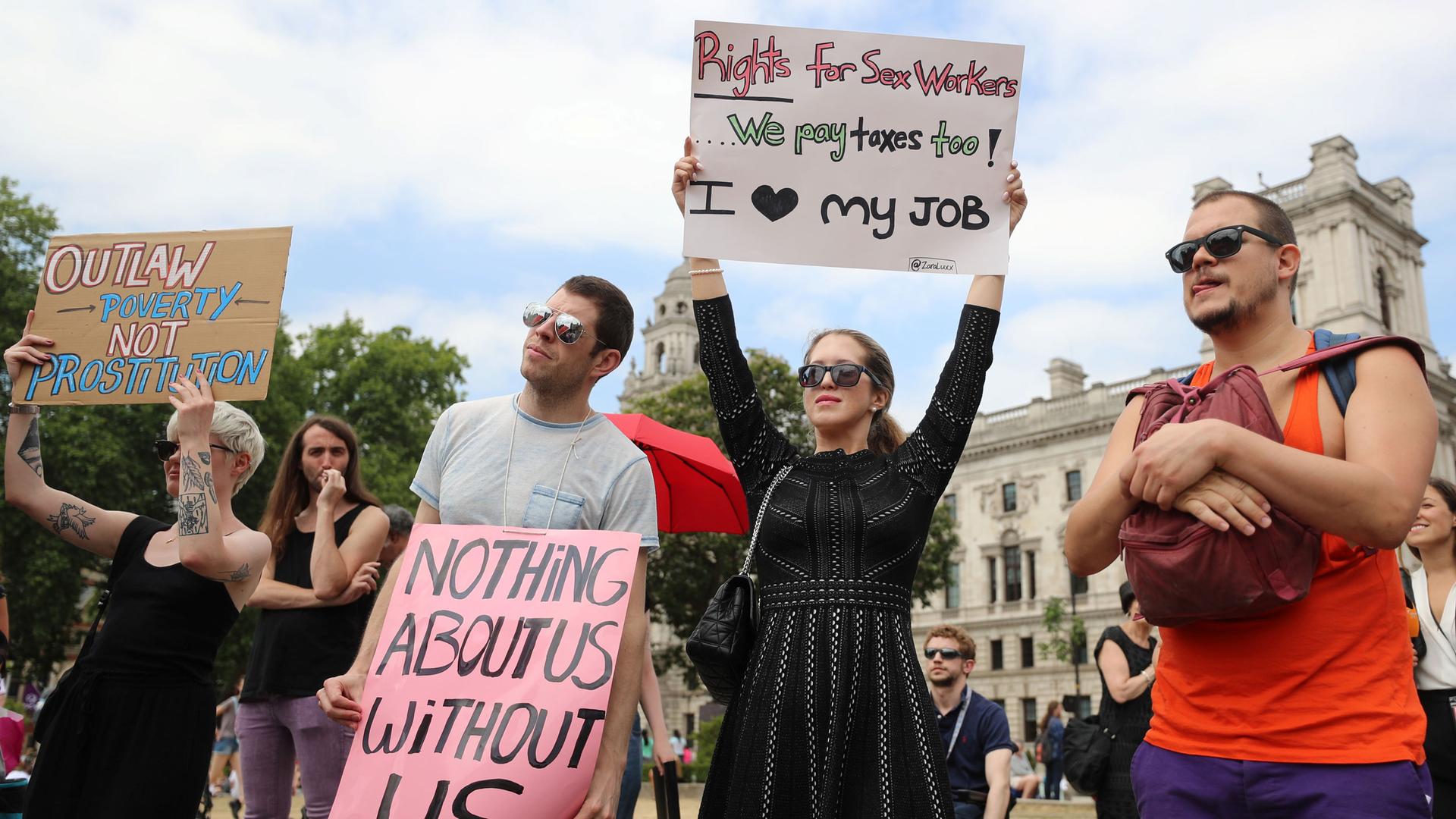Sex workers say Tumblr’s explicit image ban makes their jobs more dangerous
Sex workers demonstrate outside the Houses of Parliament in Westminster, London, Britain, on July 4, 2018.
Sex workers said they faced losing work or being forced to risk soliciting on the streets as Tumblr introduced curbs on sharing explicit imagery on Monday.
The US-based microblogging site announced the ban two weeks ago, saying it had a responsibility to consider the impact of such content “across different age groups, demographics, cultures, and mindsets.”
It had been an online hub for sex workers to advertise services and make contact with clients before the change in policy was announced this month. They said it had deprived them of one of their last mainstream safe havens.
“Every initiative that makes it harder for sex workers to advertise online and find clients online actually increases danger and the likelihood of attack,” said Niki Adams, a spokeswoman for the English Collective of Prostitutes. “It does push prostitution further and further underground.”
Asked for comment, Tumblr pointed to a blog post which said it was “sorry that this has not been an easy transition” and that it did not seek to “silence the vital conversations that take place here every day.”
The company said it would continue to represent marginalized communities and stressed some nude content such as images of nudity in a medical setting or breastfeeding would not be affected.
Sex workers said they were already suffering from the bar on sharing adult material on Tumblr.
“I was really sad and really angry,” said one online sex worker, who asked to be named only as “Peaches.”
“Online is being censored so people … are starting to work in person, to see clients in person which is just so dangerous,” she said.
Tumblr’s change of policy over sexual content came after US authorities moved to tighten restrictions on online sex work.
It coincides with the International Day to End Violence Against Sex Workers on Monday.
The US Congress this year passed two bipartisan anti-trafficking bills aimed at making it easier to prosecute owners and operators of websites that facilitate sex trafficking.
In April, US authorities shut down Backpage.com, an online marketplace used primarily to sell sex, in a move that prompted cheers from some anti-exploitation campaigners but which others said would have little impact.
At least 32 sex workers in the United States have been killed in 2018, according to the Sex Workers Outreach Project, which said criminalization helps drive violence.
A major international study this month found sex workers in countries where selling or buying sex is illegal are more likely to face violence, not use condoms and contract HIV.
Our coverage reaches millions each week, but only a small fraction of listeners contribute to sustain our program. We still need 224 more people to donate $100 or $10/monthly to unlock our $67,000 match. Will you help us get there today?
